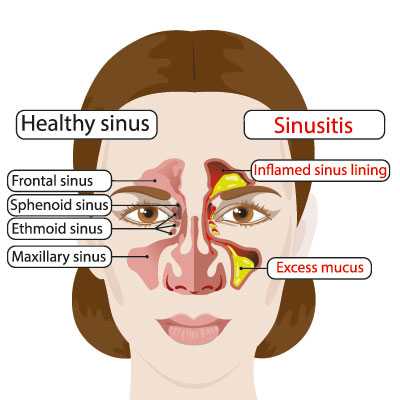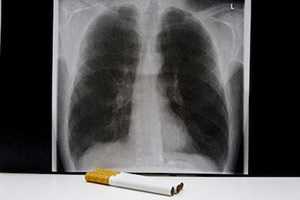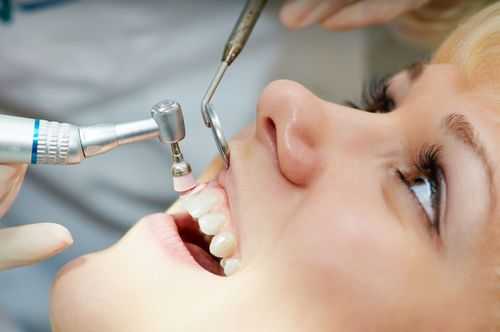
Chronic sinusitis
Under one chronic sinusitis one understands in medical terminology a permanent sinusitis. It is triggered by infection of the nose with viruses or bacteria and can be treated by various drugs.
Table of Contents
What is a chronic sinusitis?
Chronic sinusitis refers to an inflammation of the mucous membrane in the paranasal sinuses, which no longer completely subsides. A chronic disease is called when the symptoms persist even after two to three months.
The disease is relatively common and affects in its acute form mostly the antrum and ethmoid. Chronic sinusitis also occurs in these areas, but can spread even further.
causes
Chronic sinusitis is the result of acute sinusitis. This is in turn triggered by an insufficiently treated cold or a pharyngitis.
If it does not respond in time, the symptoms become chronic. Also, certain allergies to pollens, house dust or other foreign bodies can trigger the disease. However, appropriate measures can also cure chronic sinusitis.
The reason for a chronic inflammation of the paranasal sinuses may also be anatomical. A bent nasal septum, enlarged nasal turbinates or nasal polyps have a particularly negative effect on the course of the disease.
Here you will find your medication
Symptoms, complaints & sign
Chronic sinusitis can cause a number of symptoms. Typical of the disease are recurrent colds associated with runny nose, headache, stuffy nose and other classic symptoms and discomfort. Most of the time, there is an outflow that is yellowish-greenish, purulent and tough.
It drains from the nose and throat, closing the nasal cavities. There is a bad nasal breathing, which can cause dizziness, loss of performance and a strong discomfort. Accompanying this, as a rule, the perception of smell and taste is reduced. The patient also usually experiences a sense of congestion on the face, which increases with the progression of the disease in intensity.
The facial pains are usually stinging, boring or pulsating. They occur more often over the forehead, nose or cheek and often radiate into the center of the skull or in the area between the eyes. Typical of the condition is that the pain increases when the person bends quickly, stands up or hops on a leg. Chronic sinusitis may be confined to a single paranasal sinus but may also occur throughout the nasopharynx. It is often accompanied by fever or polyp formation.
diagnosis & course
In order to diagnose chronic sinusitis, the acute underlying disease must first be recognized as such. This is done based on the typical symptoms of sinusitis. These include pain in the forehead or upper jaw area, purulent rhinitis, problems with the sense of smell and a stuffy nose.
If these symptoms are not present, sinusitis can usually be ruled out. In chronic sinusitis, however, the diagnosis is more difficult because the symptoms are much weaker and occur only in spurts.
If the likelihood of sinusitis is high, an endoscopic examination is usually performed to confirm the diagnosis. The endoscope is inserted into the mouth and nostrils to detect secretions and swellings. The secretions are also studied to detect the causative agent of sinusitis. Following this, the appropriate medication is prescribed. Only when various drugs do not hit, a chronic sinusitis is diagnosed.
In addition, further examinations such as computed tomography and various allergy tests are carried out so that an operation is possible. In addition, dental checks and odor tests may be useful to avoid comorbidities. The disease is usually not fatal for those affected, but severely limits the quality of life and sometimes causes major problems in everyday life.
complications
Chronic sinusitis is said to be the case if the inflammation does not cure after two to three months. Thereafter, although there is still the possibility that the disease will go away by itself, further steps will be taken to prevent it from spreading. With medication and a change in the external circumstances, a chronic sinusitis can be made more pleasant for those affected.
However, it can not always be completely cured and some patients have to take medication for life. Chronic sinusitis can spread, spread to neighboring body regions and damage them. Failure to receive medical treatment can result in serious complications.
In particular, the eyes are particularly vulnerable. The paranasal sinuses and the eyes are separated by a thin bone plate. Inflammation can damage it so much that a breakthrough occurs and bacteria can enter the eye socket directly. Severe eye damage or even blindness can be the result.
The brain is also at risk for chronic sinusitis. If a breakthrough of the bony separation between the brain and paranasal sinuses occurs, meningitis may be the result. Such can pose a life-threatening threat and requires mandatory medical treatment. There is also the danger that pus settles in the brain structures and abscesses arise. It is also possible that blood clots form in the brain veins (thrombosis).
There is also the danger of an attack on the teeth. It is not uncommon for tooth root inflammations to have their origin in chronic sinusitis. If left untreated, the breathing through the nose worsens more and more. A consequence of this is snoring.
When should you go to the doctor?
Chronification of simple sinusitis is a complication. For this reason, any chronic sinusitis requires medical attention. Serious complications can only be avoided if a doctor is consulted in time.
In advanced stages, surgical therapy is usually essential. Otherwise, the symptoms will not improve. If a major surgery should be avoided, it makes sense to visit a doctor as soon as possible. As a rule, consult a doctor if the symptoms of acute sinusitis persist beyond the normal period. In this case, the doctor may intervene, often by administering an antibiotic.
A significant improvement of the onerous problem can usually be achieved already a few weeks after the visit of a doctor. The right contact person in this case is the Otolaryngologist, who has many diagnostic and therapeutic options at his disposal. The consultation of this specialist can also be done without referral by the family doctor.
treatment & therapy
After chronic sinusitis has been diagnosed, various measures can be taken. If allergies are the cause, antiallergic drugs and nasal spray are prescribed. Also a so-called hyposensitization is part of some therapies. In addition, antibiotics and nasal irrigation are prescribed to flush out bacteria and to relieve the symptoms.
In some cases, a dietary change may help against chronic sinusitis. This is the case if there is food intolerance. In any case, an expert must be consulted to effectively treat the condition. Meanwhile, apart from lengthy therapies, it is also possible to remedy the symptoms surgically. The closed passageways are expanded by means of a balloon. However, this so-called siluplasty is only suitable for simple cases of chronic sinusitis.
Treatments used in acute sinusitis can at least alleviate the symptoms of the chronic condition. Common therapies include inhalation of steam, acupuncture and the use of essential oils.
view & forecast
The prognosis of chronic sinusitis is individual and can not be predicted consistently for all sufferers. In spite of the chronic course of the disease, a large number of patients experience healing and complete freedom from symptoms.
There is also the possibility of a continuous course of illness in which the patient has lifelong impairments. If the doctors can restore the ventilation of the sinuses, there are good chances of recovery. In surgery, an attempt is made to achieve this goal. Success depends on the severity of the disease, the age of the patient and their overall health.
By restoring the ventilation of the paranasal sinuses, regeneration of the functional activity of the mucous membranes can take place. This process is essential for a good prognosis and can take place within a few weeks if the operation is successful. In addition, the patient must attend postoperative follow-up and follow-up examinations to ensure a good outcome.
The prognosis worsens when the disease has already spread to the surrounding regions of the face. If the eyes or teeth are already attacked by the chronic sinusitis, it can lead to lifelong damage. Full recovery, for example, is no longer possible if blindness has already been caused by chronic sinusitis.
Here you will find your medication
prevention
Sinusitis becomes a chronic disease mainly because of the lack of early detection of the causes. A preventive measure is therefore a visit to an ENT doctor when the first symptoms occur.
In addition, colds, pharyngitis and colds have to be sufficiently cured so that no chronic symptoms develop. Generally it helps to drink a lot, rinse the nose regularly with a lukewarm saline solution and ventilate the apartment well.
In addition, an allergy test can help curb the symptoms. Hyposensitization prevents chronic sinusitis as well. Finally, attention should be paid to a healthy, hardened immune system. Sufficient sports and a healthy diet are essential for the prevention of chronic sinusitis.
aftercare
Chronic sinusitis is a persistent sinusitis. This can put a lot of strain on the patient. Therefore, a treatment with decongestant cortisone sprays and a corresponding aftercare is necessary after each cold. If necessary, an operation must create a pressure relief.
If the connecting passages between the paranasal sinuses are narrowed or blocked by polyps due to curvatures in the nasal septum, frequent sinusitis is the result. Chronic sinusitis can often be treated successfully by conventional means. Most cortisone sprays help to achieve better breathing and pressure relief.
However, if the conservative treatment is not permanently successful, the symptoms of chronic sinusitis can only be remedied by surgical intervention or sinus repair under general anesthesia. The curvature in the nasal septum is often repaired. Follow-up is required because of occasional bleeding and persistent swelling postoperatively.
In addition, there is a risk that the problems will not be resolved as long term. It becomes complicated, for example, when the patient has to use a nocturnal ventilation due to sleep apnea. The nocturnal breathing aid cools the respiratory tract so that the chronic sinusitis is practically impossible to control. Here, the follow-up measures can only ensure that the already operated patient undergoes a medicamentous pressure relief with each cold.
You can do that yourself
In case of chronic sinusitis, the affected person can support his lifestyle in a supportive manner to improve his own health. Smoking should be completely avoided, as well as a stay in smoking areas or rooms. A healthy diet improves well-being and stabilizes the immune system, so that the organism can independently produce sufficient defenses.
When feeding the food, it is therefore important to look for a vitamin-rich diet and, in addition, sufficient exercise should take place. The fluid intake should be noted. The nasal mucosa needs enough fluid to regenerate. In the winter months, indoor air is often dry, and during the summer months, outside temperatures may promote dehydration of the mucous membranes. With about two liters a day, therefore, the organism must be supplied with fluid.
When dealing with other patients, care must be taken to ensure particularly hygienic behavior. Hands should be disinfected and nasal sprays or handkerchiefs should not be shared with other people. Care should be taken that no further pathogens enter the organism. Especially in cold seasons, the number of germs is significantly increased. For this reason, it is important to be cautious so that your own immune system is not burdened even more and the healing process is made more difficult.
Related Posts
-

Copd – causes, symptoms, diagnosis – treatment – home remedies »
COPD – Chronic obstructive pulmonary disease What is COPD? The abbreviation stands for “chronic obstructive pulmonary disease “; this means chronic…
-

Periodontitis: symptoms, prophylaxis, treatment, dentolo
Periodontitis: To recognize and avoid > Your gums bleed while brushing your teeth? These are signs of gingivitis. If the disease remains untreated, it…
-

Paediatrics – Causes, Symptoms & Treatment
shoulder joint inflammation A Shoulder Joint Inflammation (Periarthritis humeroscapularis) is a degenerative disease of the shoulder or shoulder girdle….
-

Hemarthrosis – Causes, Symptoms & Treatment
hemarthrosis hemarthrosis is the medical name for one Bruise in the knee . It comes as a result of a knee injury to the accumulation of blood in the…
